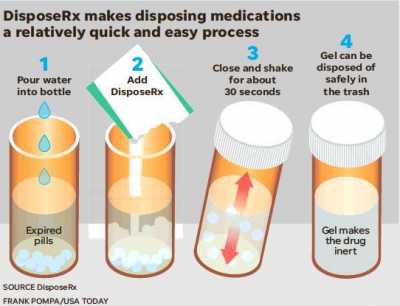Addiction, Author Interviews, JAMA, Technology / 11.07.2019
Does Short-term Treatment of Internet and Computer Game Addiction Work?
MedicalResearch.com Interview with:
 Dr. Klaus Wölfling
Psychologische Leitung - Ambulanz für Spielsucht
Klinik und Poliklinik für Psychosomatische Medizin und Psychotherapie
Universitätsmedizin der Johannes Gutenberg-Universität Mainz
Mainz
MedicalResearch.com: What is the background for this study? What are the main findings?
Response: Our institution, the outpatient clinic of Behavioral Addictions at the Department of Psychosomatic Medicine, University Medical Center Mainz started as a pilot project, which was funded by Rhineland-Palatine, our federal state in Germany. We rapidly noticed the need for treatment in the population. We revealed insights of the disease during the last decade. During this time, we developed and refined therapeutic processes addressing Internet Addiction and Gaming Disorder. We conducted a pilot study, which tested the feasibility of a CBT-treatment approach for Internet Addiction in an RCT. We learned a lot from therapy research and noticed that it was important to conduct a study, which indicates an effective treatment for this disease.
STICA found a strong remission rate for Internet and Computer game Addiction of treatment group vs. WLC (OR=10.10; 94% CI 3.69 to 27.65).
(more…)
Dr. Klaus Wölfling
Psychologische Leitung - Ambulanz für Spielsucht
Klinik und Poliklinik für Psychosomatische Medizin und Psychotherapie
Universitätsmedizin der Johannes Gutenberg-Universität Mainz
Mainz
MedicalResearch.com: What is the background for this study? What are the main findings?
Response: Our institution, the outpatient clinic of Behavioral Addictions at the Department of Psychosomatic Medicine, University Medical Center Mainz started as a pilot project, which was funded by Rhineland-Palatine, our federal state in Germany. We rapidly noticed the need for treatment in the population. We revealed insights of the disease during the last decade. During this time, we developed and refined therapeutic processes addressing Internet Addiction and Gaming Disorder. We conducted a pilot study, which tested the feasibility of a CBT-treatment approach for Internet Addiction in an RCT. We learned a lot from therapy research and noticed that it was important to conduct a study, which indicates an effective treatment for this disease.
STICA found a strong remission rate for Internet and Computer game Addiction of treatment group vs. WLC (OR=10.10; 94% CI 3.69 to 27.65).
(more…)
 Dr. Klaus Wölfling
Psychologische Leitung - Ambulanz für Spielsucht
Klinik und Poliklinik für Psychosomatische Medizin und Psychotherapie
Universitätsmedizin der Johannes Gutenberg-Universität Mainz
Mainz
MedicalResearch.com: What is the background for this study? What are the main findings?
Response: Our institution, the outpatient clinic of Behavioral Addictions at the Department of Psychosomatic Medicine, University Medical Center Mainz started as a pilot project, which was funded by Rhineland-Palatine, our federal state in Germany. We rapidly noticed the need for treatment in the population. We revealed insights of the disease during the last decade. During this time, we developed and refined therapeutic processes addressing Internet Addiction and Gaming Disorder. We conducted a pilot study, which tested the feasibility of a CBT-treatment approach for Internet Addiction in an RCT. We learned a lot from therapy research and noticed that it was important to conduct a study, which indicates an effective treatment for this disease.
STICA found a strong remission rate for Internet and Computer game Addiction of treatment group vs. WLC (OR=10.10; 94% CI 3.69 to 27.65).
(more…)
Dr. Klaus Wölfling
Psychologische Leitung - Ambulanz für Spielsucht
Klinik und Poliklinik für Psychosomatische Medizin und Psychotherapie
Universitätsmedizin der Johannes Gutenberg-Universität Mainz
Mainz
MedicalResearch.com: What is the background for this study? What are the main findings?
Response: Our institution, the outpatient clinic of Behavioral Addictions at the Department of Psychosomatic Medicine, University Medical Center Mainz started as a pilot project, which was funded by Rhineland-Palatine, our federal state in Germany. We rapidly noticed the need for treatment in the population. We revealed insights of the disease during the last decade. During this time, we developed and refined therapeutic processes addressing Internet Addiction and Gaming Disorder. We conducted a pilot study, which tested the feasibility of a CBT-treatment approach for Internet Addiction in an RCT. We learned a lot from therapy research and noticed that it was important to conduct a study, which indicates an effective treatment for this disease.
STICA found a strong remission rate for Internet and Computer game Addiction of treatment group vs. WLC (OR=10.10; 94% CI 3.69 to 27.65).
(more…)






























